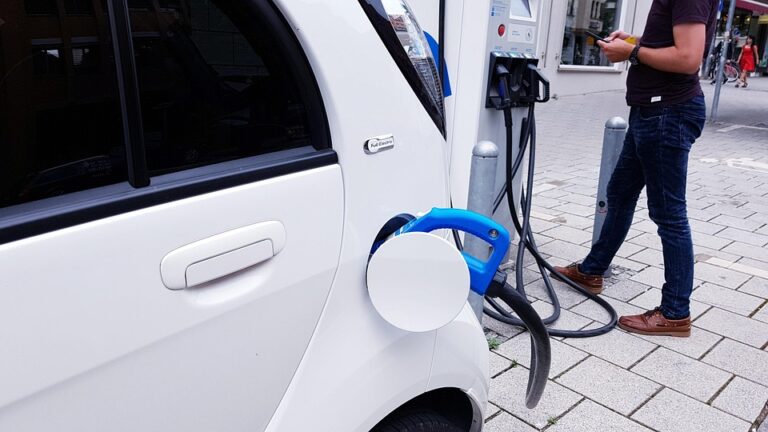The Role of Businesses in Supporting Electric Vehicle Charging Accessibility
As the auto industry pivots towards sustainability, the demand for electric vehicles (EVs) is on the rise. A critical aspect of this transition is ensuring that electric charging stations are both accessible and widespread. Businesses play a pivotal role in supporting this initiative, driving change that not only supports the environment but also enhances customer satisfaction.
Understanding the Importance of Electric Charging Stations
With global oil supplies dwindling and concerns about climate change escalating, the shift to electric vehicles is more pressing than ever. However, for electric cars to take center stage, a robust charging infrastructure is imperative. This means not only having enough charging stations but ensuring they are in convenient locations and easily accessible to various demographics, including urban residents, businesses, and travelers.
Why Accessibility Matters
Electric charging accessibility translates to reduced range anxiety among potential EV users, promoting the shift from gas-powered vehicles to electric alternatives. Accessibility can significantly impact the adoption rates of EVs. According to a report from the International Energy Agency, the number of EVs on the road could increase by more than 125 million by 2030 if charging infrastructure is appropriately developed.
The Role of Businesses in Facilitating Charging Infrastructure
Businesses are uniquely positioned to drive the expansion of electric charging stations in various ways, including installation, partnerships, and corporate sustainability initiatives.
1. Installing Charging Stations
Many businesses have begun installing electric charging stations on their premises, turning their properties into EV-friendly locations. Here’s how they can benefit:
- Attracting Eco-Conscious Customers: Installing charging stations can be a market differentiator, attracting customers who prioritize sustainability.
- Incentivizing Employees: Companies can offer free charging as a perk for employees who drive electric vehicles.
- Added Revenue Streams: Businesses can partner with charging networks to earn money through charging fees, creating an additional revenue stream from their existing assets.
2. Partnering with Charging Networks
Collaboration is key to expanding charging infrastructure. Businesses can partner with charging network providers to ensure:
- Wider Accessibility: By collaborating with well-established charging networks, businesses can help extend their reach and availability.
- Shared Resources: Businesses can share the investment costs associated with purchasing and installing charging units, making it a more manageable financial commitment.
3. Promoting Sustainability Initiatives
Incorporating electric vehicle charging into a company’s broader sustainability strategy can foster goodwill and improve brand image. Here’s how:
- Corporate Social Responsibility (CSR): Investing in EV charging can be part of a company’s CSR strategy, showing employees and customers that they are committed to sustainable practices.
- Marketing Opportunities: Companies can promote their commitment to green initiatives, potentially attracting new customers who value environmental responsibility.
Successful Case Studies
Major Retailers Lead the Charge
Retail giants like Walmart and Target have set the standard by installing EV charging stations at many of their locations. These initiatives allow customers to charge their vehicles while shopping, thus maximizing convenience and improving their brand’s eco-friendly image.
Automaker Partnerships
Furthermore, companies such as Tesla have been successful in establishing extensive networks of Superchargers, but partnerships with local businesses such as restaurants or grocery stores can promote charging availability while benefiting from customer foot traffic.
Challenges and Solutions
While the benefits are significant, businesses may face challenges in supporting EV charging accessibility. These include:
-
Cost of Installation: High upfront costs can deter many businesses. However, federal grants and incentives aimed at promoting EV infrastructure can alleviate some financial burdens.
- Space Limitations: Urban areas may lack available space for charging stations. Creative solutions like using curbside charging or repurposing underutilized spaces can mitigate this issue.
Looking to the Future
As the push for electric vehicles intensifies, businesses must take an active role in enhancing the availability and accessibility of electric charging stations. The convergence of sustainability and technology presents a unique opportunity for companies to invest in a cleaner future while reaping economic rewards.
Conclusion
The transition to electric vehicles is not just the responsibility of consumers or governments; businesses have a vital role to play in ensuring that electric charging stations become the norm. By installing charging facilities, forming partnerships with charging networks, and promoting sustainability initiatives, businesses can support the broader goal of creating an accessible and efficient charging infrastructure.
The question remains: Will your business step up and be part of the solution? The future of transportation is electric, and it’s time for businesses to energize their operations by embracing this change.
Call to Action: Explore how your business can invest in electric vehicle charging stations and contribute to a sustainable future. Together, we can drive the change needed for greener roads ahead.


